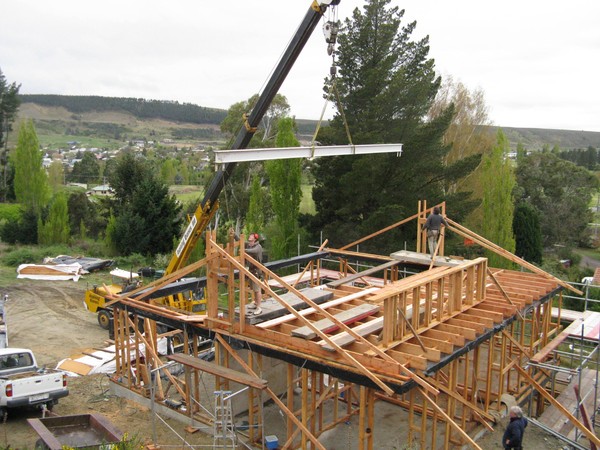Changes to New Zealand’s workplace health and safety legislation have been in the works since the Pike River Mine disaster back in 2010.
While workplace tragedies like Pike River attract widespread attention, per capita New Zealand has a comparatively high level of occupational injury generally.
In a bid to address this, updated legislation - in the form of the Health and Safety at Work Act – is coming into force on April 4.
This might not seem relevant to property investors but, in fact, the legislation applies to anyone responsible for a residential property build, be it a new build or an extensive renovation.
WorkSafe New Zealand construction programme manager Marcus Nalter said that, on a typical house build, there are lots of players involved – the client, maybe an architect, a lead contractor and all the sub-contractors.
Under the new legislation, they will all have a role to play in keeping not only their own workers safe on site but others as well.
Nalter said each business involved – which includes the person responsible for developing the property - will have duties to ensure the health and safety of the workers on site that they influence or have control over.
“Where they have overlapping responsibilities for the same workers they have a duty to consult, co-ordinate and cooperate with each other to ensure that duty is met.”
This is known as “overlapping duties”, he said.
“In practice, what it means is the person or business that is best placed to manage a risk that affects more than just their own workers has primary responsibility to do so – but everyone has to play their part. “
When it comes to professional property developers, or investors developing properties through a company they have set up, there can be a duty of due diligence.
Nalter said this duty applies to directors, partners, chief executives or anyone else who occupies a position which means they have significant influence over the management of the business or undertaking.
“So if a property developer carries out one of those governance roles within their company (or any other company) they would have the duty of due diligence.
“The test is do they exercise significant influence over the management of the business or undertaking.”
Ultimately, the new law is designed to encourage co-operation on site.
For example, many building sites already start the day with a toolbox talk, Nalter said.
“Having open lines of communication between workers, supervisors and managers has always been a good idea. The new Act specifically encourages that sort of approach by introducing a duty to engage with workers that applies to all workplaces.
“It doesn’t set down in stone what form that engagement should take, but a quick daily chat about safety and hazards on site each day is a good place to start.”
Health and safety doesn’t have to be difficult and doesn’t have to mean a lot of paperwork, Nalter said.
“It starts with identifying risks, talking about them with anyone on site that might be affected, and finding appropriate ways to manage them.”
While it is not possible to eliminate all risks, the key is doing what is “reasonably practicable” to control and minimise risks.
“So identify on-site risks, the likelihood of an incident and the consequences of them. Your control measures should reflect the seriousness of the risk.”
Under the new legislation, there are a range of penalties which result from non-compliance. These range from the issuing of improvement notices to criminal proceedings.
The Health and Safety at Work Act 2015 can be read here. For more information about the new legislation contact WorkSafe New Zealand.





 Search
Search
